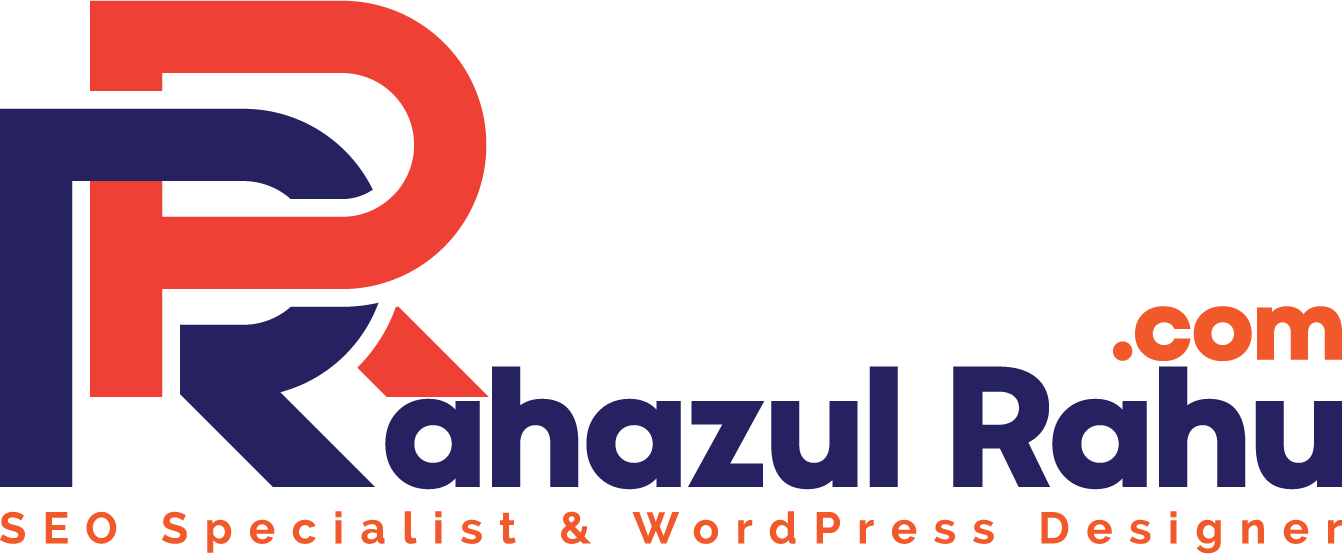Search Engine Optimization (SEO) is a crucial aspect of website development and digital marketing. It is a process of optimizing websites to rank higher in search engine results pages (SERPs) organically. In simple terms, SEO is the practice of improving the quality and quantity of website traffic by making the website more visible to search engine users. In this blog post, we will discuss the basics of SEO and its importance for your website. H1: What is SEO? SEO is a set of techniques and strategies aimed at improving the visibility and ranking of websites in search engine results pages. The primary goal of SEO is to attract more organic traffic to a website. SEO consists of various elements such as on-page optimization, off-page optimization, technical optimization, and content optimization.
A Comprehensive Guide to Search Engine Optimization
Search Engine Optimization, or SEO for short, is a digital marketing strategy that focuses on improving the quality and quantity of traffic to a website from search engines. In other words, SEO is the process of optimizing a website to rank higher in search engine results pages (SERPs), such as Google, Bing, and Yahoo.
Why is SEO important?
Search engine optimization (SEO) has become an essential component of any successful digital marketing strategy. It involves optimizing your website and content to rank higher in search engine results pages (SERPs) for relevant keywords and phrases. In this article, we will discuss why SEO is important for businesses of all sizes.
Firstly, SEO is crucial for increasing website traffic. The majority of users who search for products or services online are more likely to click on the top organic search results. By optimizing your website and content for relevant keywords, you increase your chances of ranking higher in search engine results pages, and ultimately, attract more organic traffic to your website.
Secondly, SEO helps build credibility and trust with your target audience. When your website ranks high in search engine results pages, it sends a signal to users that your website is trustworthy and authoritative. This, in turn, can lead to increased brand awareness, credibility, and ultimately, more conversions.
Thirdly, SEO is cost-effective compared to other digital marketing strategies such as paid advertising. While paid advertising can drive instant traffic to your website, it can be costly and unsustainable in the long run. On the other hand, SEO can provide long-term results that can benefit your business in the years to come.
Fourthly, SEO can help you stay ahead of the competition. In today’s digital age, businesses of all sizes are competing for online visibility. By implementing an effective SEO strategy, you can differentiate your business from the competition and attract more customers.
Lastly, SEO is continually evolving, and staying up-to-date with the latest trends and best practices can help you stay relevant and visible in search engine results pages. Search engine algorithms are constantly changing, and by investing in SEO, you can ensure that your website remains optimized and competitive.
In conclusion, SEO is essential for any business looking to increase online visibility, attract more traffic, and ultimately, generate more conversions. By optimizing your website and content for relevant keywords and staying up-to-date with the latest trends and best practices, you can stay ahead of the competition and achieve long-term success.
How does SEO work?
Search engine optimization (SEO) is a complex process that involves optimizing your website and content to rank higher in search engine results pages (SERPs) for relevant keywords and phrases. In this article, we will discuss how SEO works and the various factors that influence your website’s ranking in search engine results pages.
Search engines use complex algorithms to determine which websites and content to display in their search results pages. These algorithms take into account a variety of factors such as keyword relevance, website structure, content quality, and user experience.
The first step in SEO is keyword research. This involves identifying relevant keywords and phrases that your target audience is searching for. Once you have identified these keywords, you can optimize your website and content around them, ensuring that they appear in the right places such as page titles, meta descriptions, headers, and throughout your content.
Another important factor in SEO is website structure. A well-structured website with clear navigation and a logical hierarchy can help search engines crawl and index your website more easily. This, in turn, can help improve your website’s visibility and ranking in search engine results pages.
Content quality is another crucial factor in SEO. Search engines prioritize high-quality, informative, and relevant content. By creating content that answers your audience’s questions and provides value, you can improve your website’s ranking in search engine results pages.
User experience is also a critical factor in SEO. Search engines prioritize websites that provide a positive user experience, including fast load times, mobile responsiveness, and easy navigation. By ensuring that your website is user-friendly, you can improve your website’s visibility and ranking in search engine results pages.
Lastly, backlinks are a significant factor in SEO. Backlinks are links from other websites that point to your website. The more high-quality backlinks your website has, the more authoritative and trustworthy it appears to search engines. This can help improve your website’s ranking in search engine results pages.
In conclusion, SEO is a complex process that involves optimizing your website and content for relevant keywords and phrases, ensuring a well-structured website, providing high-quality content, delivering a positive user experience, and building high-quality backlinks. By implementing an effective SEO strategy, you can improve your website’s visibility and ranking in search engine results pages, attract more organic traffic, and ultimately, generate more conversions.
Types of SEO
Search engine optimization (SEO) is a process of optimizing your website and content to rank higher in search engine results pages (SERPs) for relevant keywords and phrases. There are different types of SEO that businesses can use to improve their website’s visibility and ranking. In this article, we will discuss the three main types of SEO.
- On-page SEO: On-page SEO refers to the process of optimizing the content and structure of individual web pages on your website. This includes optimizing page titles, meta descriptions, header tags, and content for relevant keywords and phrases. On-page SEO also involves ensuring that your website’s structure is well-organized, easy to navigate, and mobile-friendly.
- Off-page SEO: Off-page SEO refers to the process of building backlinks to your website from other high-authority websites. Backlinks are links from other websites that point to your website. The more high-quality backlinks your website has, the more authoritative and trustworthy it appears to search engines. Off-page SEO also includes social media marketing, influencer outreach, and guest blogging to promote your website and increase its visibility.
- Technical SEO: Technical SEO refers to the process of optimizing the technical aspects of your website to improve its performance, security, and user experience. This includes optimizing website speed, implementing SSL security, optimizing images, and ensuring that your website is mobile-friendly. Technical SEO also involves optimizing your website’s structure and code to make it easier for search engines to crawl and index your website.
In conclusion, these are the three main types of SEO that businesses can use to improve their website’s visibility and ranking in search engine results pages. By implementing an effective SEO strategy that includes on-page, off-page, and technical SEO, businesses can attract more organic traffic, generate more conversions, and ultimately, grow their business.
On-Page SEO Techniques
On-page SEO is the process of optimizing individual web pages to rank higher in search engine results pages (SERPs) and attract more organic traffic. Here are some effective on-page SEO techniques that businesses can use to improve their website’s visibility and ranking.
- Keyword research: Identify relevant keywords and phrases that your target audience is searching for and incorporate them into your website’s content, meta tags, and headers.
- Content optimization: Ensure that your website’s content is well-written, informative, and relevant to your target audience. Use headers, subheaders, and bullet points to break up your content and make it easy to read.
- Meta tags optimization: Optimize your website’s meta tags, including title tags, meta descriptions, and header tags, to include relevant keywords and provide a brief summary of your website’s content.
- URL structure optimization: Use short, descriptive, and keyword-rich URLs that accurately reflect the content of each web page.
- Image optimization: Optimize your website’s images by compressing them, using descriptive filenames, and adding alt text to improve accessibility and help search engines understand the content of the images.
By implementing these on-page SEO techniques, businesses can improve their website’s visibility, attract more organic traffic, and ultimately, generate more leads and sales.
Off-Page SEO Techniques
Off-page SEO refers to the techniques used to improve a website’s authority, reputation, and relevance in the eyes of search engines. Here are some effective off-page SEO techniques that businesses can use to improve their website’s visibility and ranking.
- Link building: Build high-quality backlinks to your website from other relevant and authoritative websites. This can be done through guest blogging, influencer outreach, and other link-building strategies.
- Social media marketing: Promote your website and content on social media platforms to increase visibility, engagement, and traffic to your website.
- Online reputation management: Monitor and manage your online reputation by responding to customer reviews, addressing negative feedback, and promoting positive reviews and testimonials.
- Influencer marketing: Collaborate with influencers in your industry to promote your website and content to their followers.
- Content marketing: Create high-quality, informative, and engaging content that people want to share, link to, and promote on their own websites and social media channels.
By implementing these off-page SEO techniques, businesses can improve their website’s authority, relevance, and reputation in the eyes of search engines, attract more organic traffic, and ultimately, grow their business.
Technical SEO
Technical SEO refers to the process of optimizing a website’s technical infrastructure to improve its visibility, crawlability, and indexing in search engine results pages (SERPs). Here are some effective technical SEO techniques that businesses can use to improve their website’s ranking and visibility.
- Website speed optimization: Ensure that your website loads quickly and efficiently by optimizing images, using caching, and minimizing HTTP requests.
- Mobile optimization: Ensure that your website is mobile-friendly and responsive, with easy-to-navigate menus, readable text, and optimized images.
- Structured data markup: Use structured data markup to help search engines understand the content and structure of your website, which can improve visibility in SERPs.
- XML sitemap optimization: Create and optimize an XML sitemap to help search engines crawl and index your website’s content more effectively.
- HTTPS implementation: Implement HTTPS encryption to ensure that your website is secure and trustworthy, which can improve its visibility in search results.
By implementing these technical SEO techniques, businesses can improve their website’s crawlability, indexing, and overall visibility in search results, ultimately driving more organic traffic and growing their business.
Conclusion
In conclusion, Rahazul Rahu is an experienced and knowledgeable professional who can help you improve your online presence through various services such as web design, SEO, and more. By working with Rahazul, you can ensure that your website is optimized for search engines and that your brand is visible to your target audience. With his expertise and attention to detail, you can trust that your online presence will be in good hands. So why wait? Contact Rahazul Rahu today to take your business to the next level.

